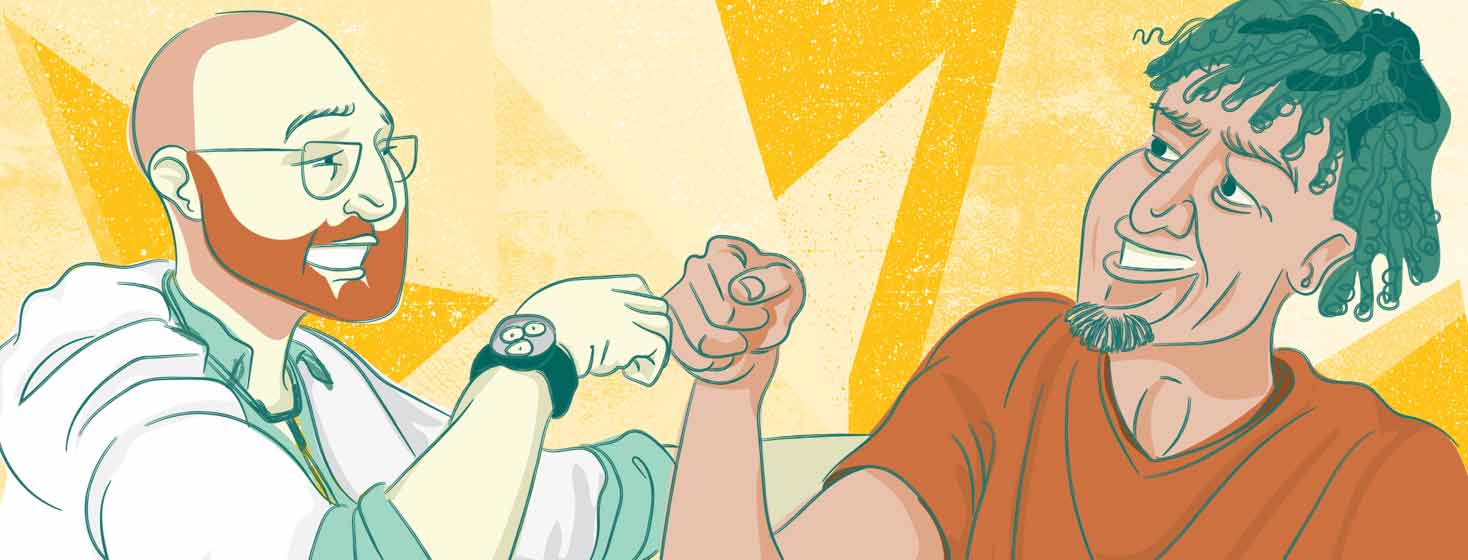Relationships Between Patients and Doctors: a Pharmacist's Perspective (Part 1)
Editor's note: This is part 1 of a series. Keep an eye out for part 2!
As a pharmacist, I often hear about the quality of the patient-doctor relationship directly from the patient. Typically, there are two extremes of the patient relationship that's disclosed to me: patients who don’t trust their physician, and on the flip-side, those who adore and respect their physician.
Over the past few years, I have come to an anecdotal conclusion: patients with a good working relationship with their physicians tend to fare better than those with poor relationships.
Building a healthy relationship
Definition
The patient-doctor relationship can be defined as: "A consensual relationship in which the patient knowingly seeks the physician’s assistance and in which the physician knowingly accepts the person as a patient."1
Outcomes and elements
The impact of a healthy patient-doctor relationship has been long studied. Studies have linked better health outcomes in those with trusting, respectful relationships with their doctors.2 For example, people would be surprised to learn that their relationship with their doctor may impact their blood pressure. Other outcomes that are related to the quality of the patient-doctor relationship include:2
- How compliant a patient is with their medication (i.e., how often they miss doses)
- How often they see their doctor
- The patient’s sugar, and triglyceride (fat) levels
- The patient’s emotional status
Studies have identified 4 main elements of a healthy patient-doctor relationship:3
- Trust
- Loyalty
- Knowledge
- Regard
Patient expectations
From your perspective as a patient, it is easy to identify these four elements as important factors in your relationship with your doctor. You want a physician who maintains your privacy and confidentiality. Furthermore, everyone expects a physician to be dependable and available for a consultation within a reasonable period of time.
We expect that our doctor is knowledgeable - after all, they have had over a decade of formal education! - and maintains continuing education requirements. Finally, we desire a doctor who respects and considers our perspectives and values. This includes demonstrating empathy and giving patients their full attention.
Having said that, I want to emphasize that it takes two to tango. The 4 main elements described above apply not only to physicians; they apply to the patient as well.
Feedback from patients
I often hear from patients who are not satisfied with their doctor. These patients often feel misunderstood, misheard, or feel their physician is not doing their full diligence investigating their health ailments. I have patients who are on the far end of the spectrum who do not trust their physician at all: they may ignore their doctor’s advice, and instead, turn to their pharmacist.
On the flip side, I have patients who don’t trust the advice of any other healthcare professional except their doctor. Both approaches are extreme and are not necessarily ideal.
How can the relationship be improved?
If you fall into the category of having a poor relationship with your physician, there are steps that you can take to help improve it. A relationship where there is mutual participation between you and your doctor - an equal partnership - is one that should be strived for.

Join the conversation